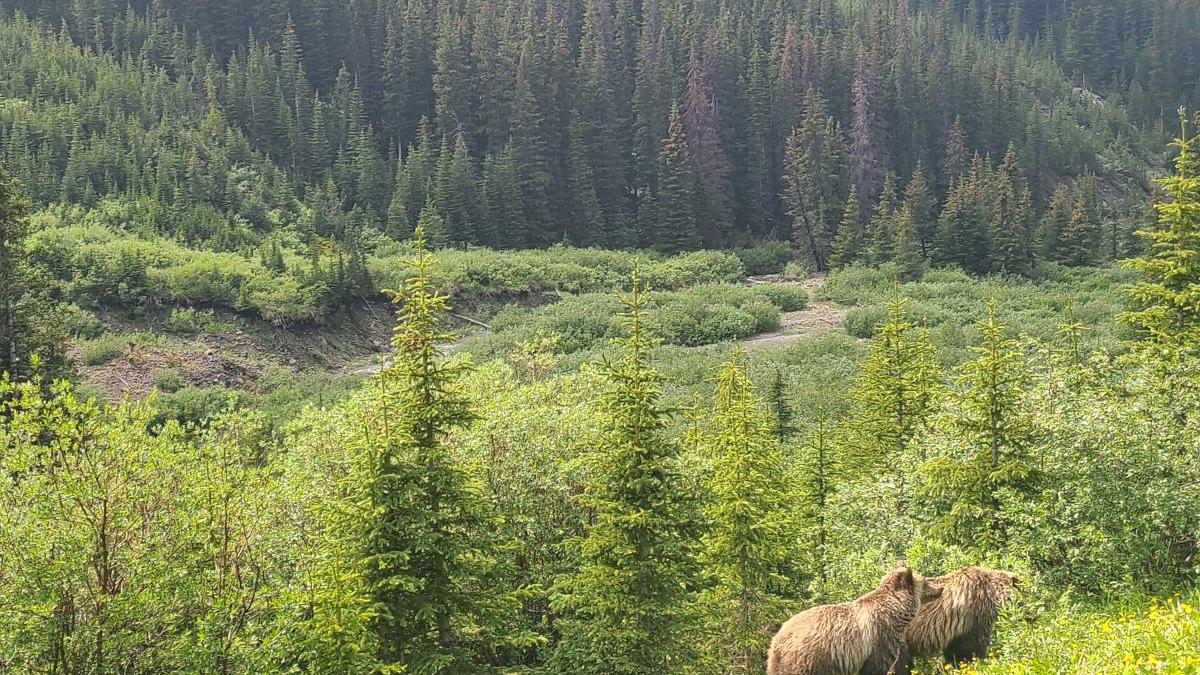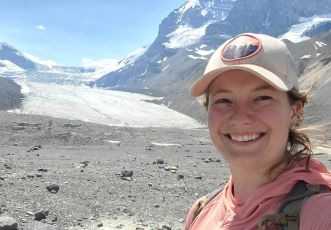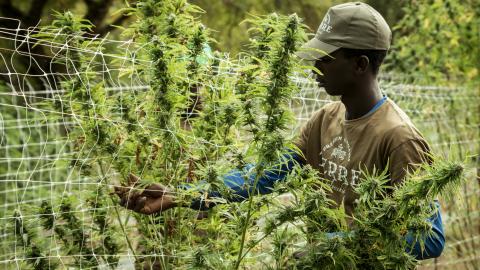
June 27, 2023
Mallory Thomas, 2nd year MS student in the NWCOHS Occupational Health at the Human-Animal Interface (OHHAI) program, attended the 3rd annual One Health Summer Institute at the Kananaskis Field School in Calgary, Alberta. This post shares her reflections on attending this event.
Our university bus rumbled up the mountainside towards the Columbia Ice Shelf. This massive ice field lays at the top of the continental divide at the center of the Banff National Park in Alberta, Canada. The glaciers that form this summit are rapidly losing ground. Approximately 60km2 was lost in the last 100 years as a visible testament to the devastating effects that climate change has had on the Rock Mountains. The loss of these glaciers means the destruction of the headwaters for two of Canada’s greatest rivers.
 In June 2023, I attended the University of Calgary’s third annual One Health Summer Institute. This year the focus was on the environment, and the effects of climate on the health of humans, plants, and animals. A mix of lectures, fieldwork, and field trips filled each day of the seven-day seminar. The students in attendance were a range of undergraduates, graduates, and career professionals. Together, we represented seven countries, five languages, and many professions both within and beyond public health.
In June 2023, I attended the University of Calgary’s third annual One Health Summer Institute. This year the focus was on the environment, and the effects of climate on the health of humans, plants, and animals. A mix of lectures, fieldwork, and field trips filled each day of the seven-day seminar. The students in attendance were a range of undergraduates, graduates, and career professionals. Together, we represented seven countries, five languages, and many professions both within and beyond public health.
We met with experts of glacier health, hydrology, conservation, epidemiology, and veterinarians to understand how the One Health framework could be applicable in research, land management, and policy. The goal of the seminar was to not only strengthen our foundations in climate change research, but also build our understanding of communication systems and intrapersonal dialogues needed to make cohesive One Health solutions.
We spoke with university researchers, First Nation representatives, UN representatives, local business owners, environmental lawyers, and professional mountain guides to gain insight into the challenges facing the Kananaskis area, Canada, and international policy makers. Each speaker shared their unique perspective on the impacts of climate change and provided guidance on how to apply One Health solutions in a broader context. What resonated for me was how each speaker shared a small piece of a much larger puzzle that we need to consider in order to mitigate the impacts of climate change.
We heard first-hand accounts on how to find interdisciplinary solutions and how to identify potential challenges that could be roadblocks to discussion and cooperation. Hearing these accountings and role-playing scenarios gave the seminar and discussion breadth and depth on both national and international issues. All of the attendees were drawn to this Institute through a shared appreciation for One Health and the motivation to remove barriers for communication between human, animal and environmental health sectors to end the current siloed approach to public health.
I was excited to be a part of this cohort and gain a greater understanding of how others outside of the United States approach One Health. Because of education has been primarily in the United States, I was eager to learn more about how Canada approaches One Health. I was surprised to learn that Alberta shares many of its environmental challenges across their southern border with the United States. For example, the headwaters of many rivers start in Canada before flowing into the United States. It was an exciting opportunity to be a part of this Institute and I am looking forward to applying what I have learned in the coming academic year.




